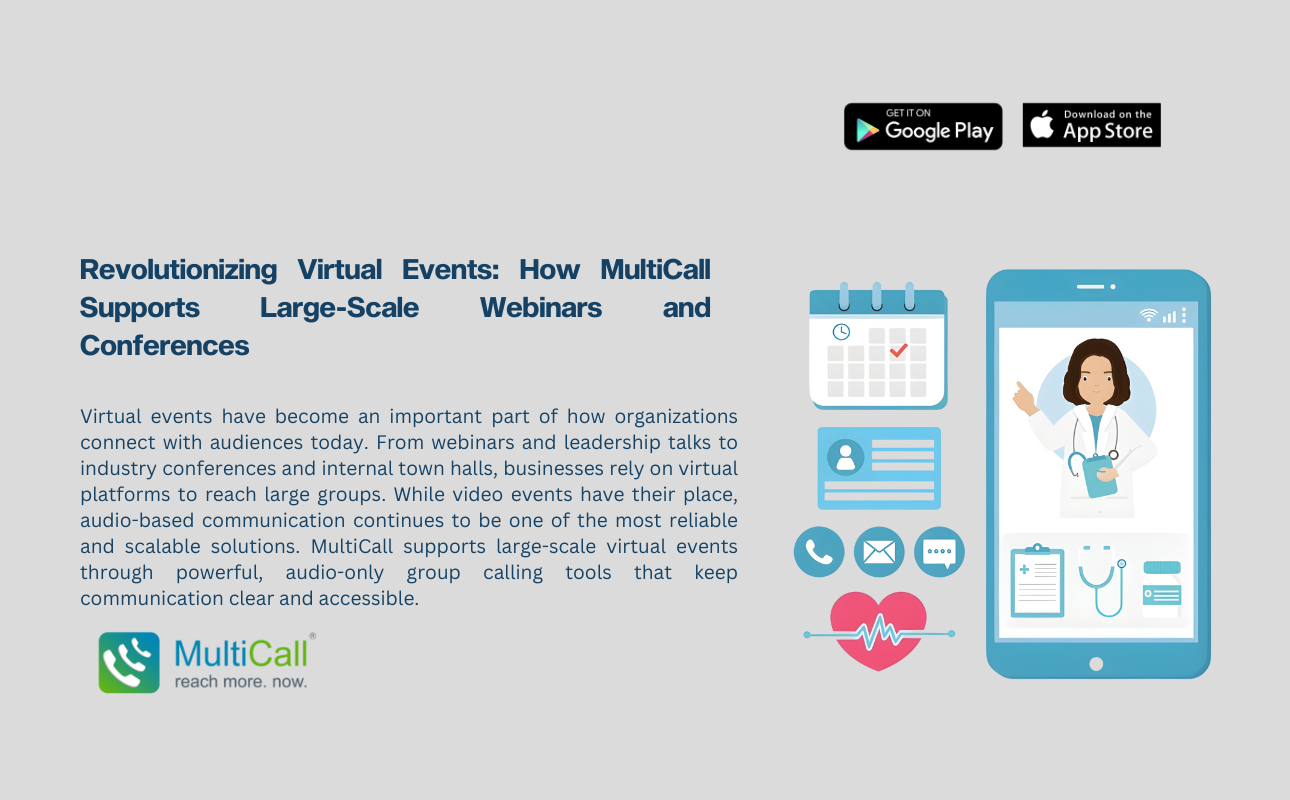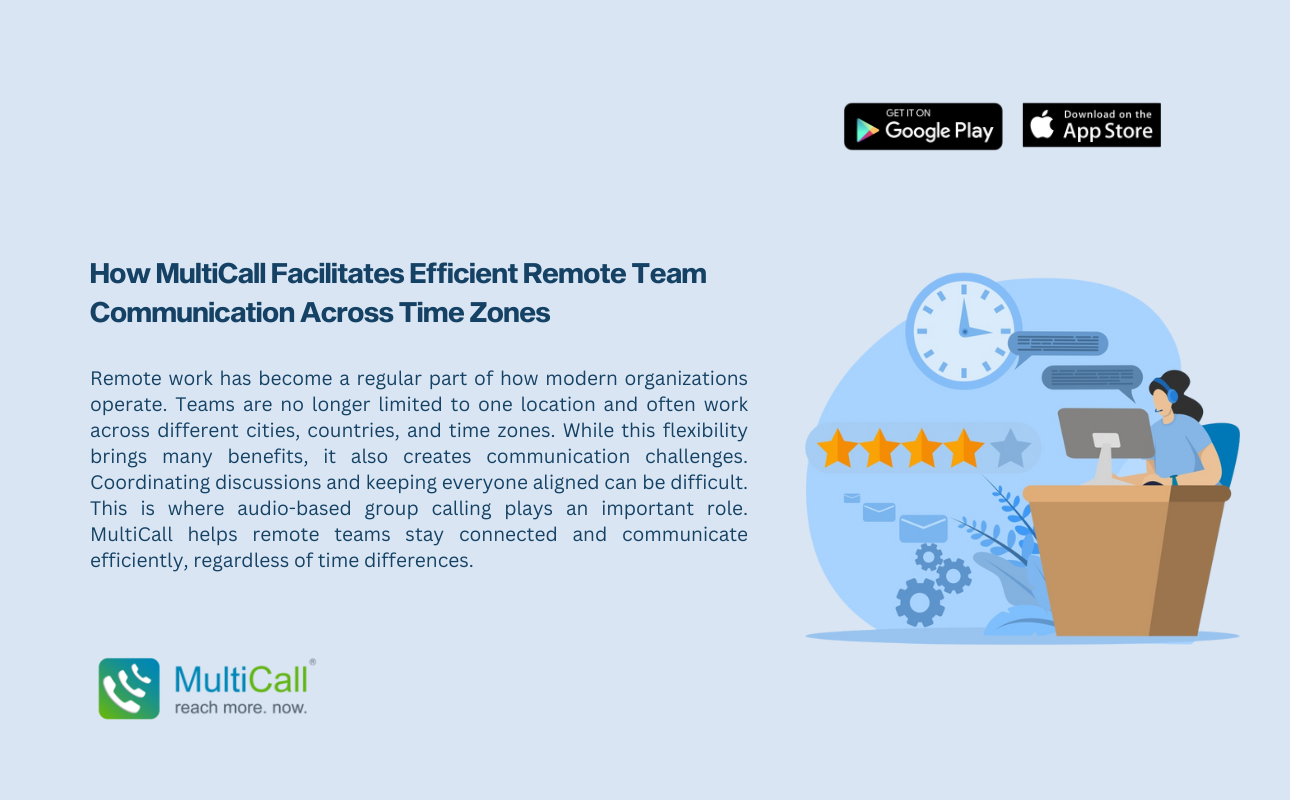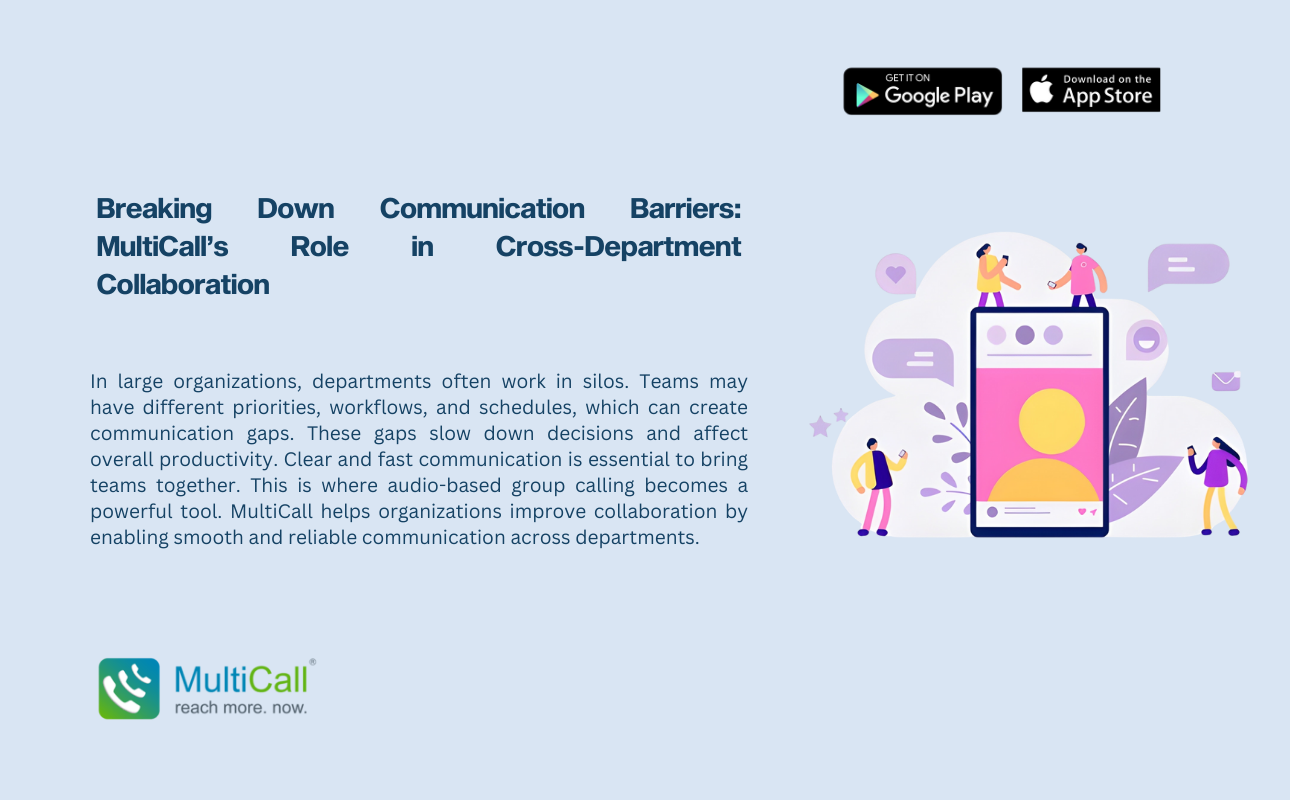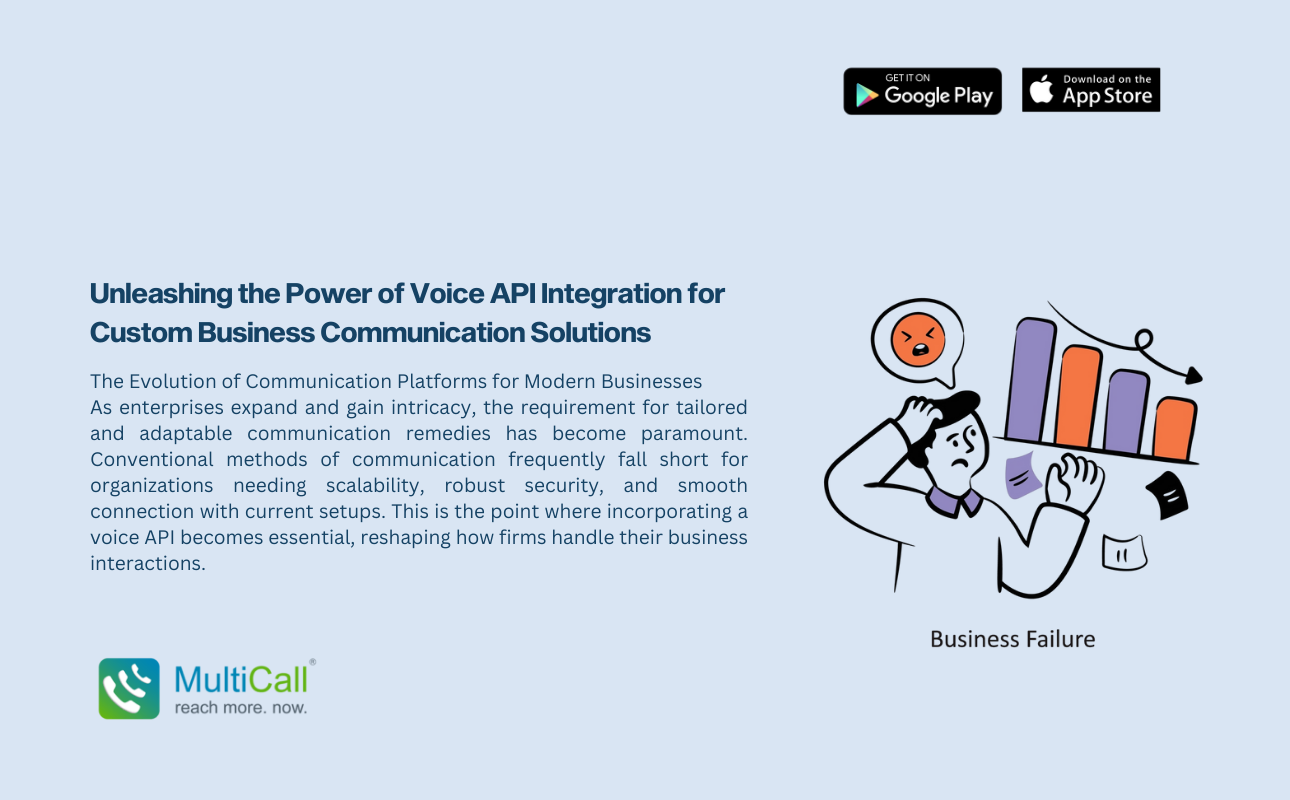

Revolutionizing Virtual Events: How MultiCall Supports Large-Scale Webinars and Conferences
Virtual events have become an important part of how organizations connect with audiences today. From webinars and leadership talks to industry conferences and internal town halls, businesses rely on virtual platforms to reach large groups. While video events have their place, audio-based communication continues to be one of the most reliable and scalable solutions. MultiCall supports large-scale virtual events through powerful, audio-only group calling tools that keep communication clear and accessible.


















